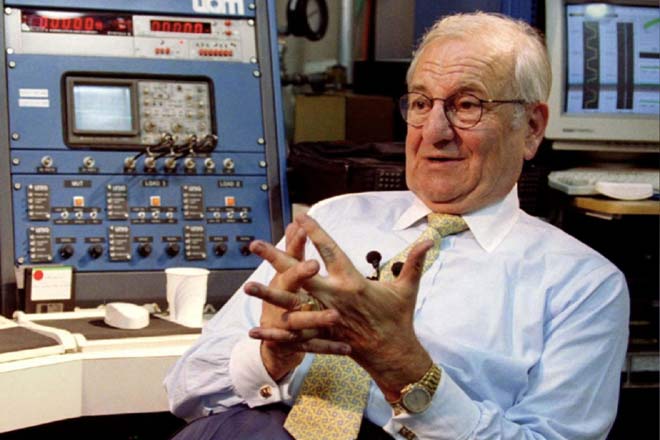
One of the all-time greatest executives in American automotive history, Lido Anthony ‘Lee’ Iacocca has passed away at the age of 94. Lee Iacocca was responsible for many of Ford’s successful and iconic products like the Mustang and the Pinto in addition to rescuing the Chrysler brand that made him one of the most respected people in the industry.
Lee Iacocca was born on October 15, 1924, to Italian immigrants living in Allentown, Pennsylvania. He graduated from Lehigh University in Bethlehem, Pennsylvania with a degree in industrial engineering. Following that he attended Princeton University where he studied politics and plastics as electives. In August 1946, Iacocca began his career at Ford as an engineer, and after a brief stint, he was moved to sales and marketing where he flourishes. By November 1960, he had moved up the ranks at Ford and Iacocca became the vice-president and general manager of the Ford Division. In January 1965, Iacocca was named Ford’s vice-president, car and truck group, then executive-vice president by 1967. On December 10, 1970, Lee Iacocca became the President of the Ford Motor Company.
During his tenure with Ford, Lee Iacocca was responsible for many successful Ford models like the Ford Pinto, Continental Mark III, the Ford Escort and the most iconic sports car to have ever hit the global streets, the Ford Mustang. He was also responsible for reviving the now-defunct Mercury brand in the late ’60s with the introduction of the Mercury Cougar and Mercury Marquis. One of the most notable Iacocca’s ideas was with the Ford Pinto to be a reliable, economic and compact car for the masses that weighed 2000 pounds and cost $2000. Over the course of the Pinto’s life from 1971 to 1980, Ford sold 3,173,491 units and that says it all.
However, despite such a lustrous success, he had clashed with Henry Ford II and on July 13, 1978, Iacocca was fired from the company despite recording $2 billion in profits that year. Iacocca wished new products like the K-Car platform and minivans, which he then went on to create when he moved to Chrysler. Iacocca rebuilt the entire company from the ground up after the company was brought to its knees from the recalls of the Dodge Aspen and Plymouth Volare. Iacocca went on to create the highly successful Dodge Caravan and the Plymouth Voyager.
Fiat Chrysler released a statement regarding Iacocca’s death saying “he Company is saddened by the news of Lee Iacocca’s passing. He played a historic role in steering Chrysler through crisis and making it a true competitive force. He was one of the great leaders of our company and the auto industry as a whole. He also played a profound and tireless role on the national stage as a business statesman and philanthropist.
Lee gave us a mindset that still drives us today – one that is characterized by hard work, dedication and grit. We are committed to ensuring that Chrysler, now FCA, is such a company, an example of commitment and respect, known for excellence as well as for its contribution to society. His legacy is the resiliency and unshakeable faith in the future that live on in the men and women of FCA who strive every day to live up to the high standards he set.”
Bill Ford, Executive Chairman, Ford Motor Company said “Lee Iacocca was truly bigger than life and he left an indelible mark on Ford, the auto industry and our country. Lee played a central role in the creation of Mustang. On a personal note, I will always appreciate how encouraging he was to me at the beginning of my career. He was one of a kind and will be dearly missed.”
Iacocca’s contribution to the Ford Motor Company is expected to be highlighted in the upcoming feature film Ford vs Ferrari which depicts the epic Le Mans rivalry between the Italian and America’s manufacturers on the race track. Lee Iacocca will be portrayed in the film by Jon Bernthal, made famous for his action roles like Marvel’s The Punisher.
Lee Iacocca passed away in his home in Bel Air, Los Angeles, California at the age of 94 which was caused reportedly by complications of Parkinson’s disease. He is survived by his two daughters, his legacy and the Iacocca Family Foundation which has funded over $45 million in innovative and promising Type 1 Diabetes research programs and projects.




















